If you’ve heard of the Subaru Vivio at all, it might be through rallying. While not exactly one of the giants of the sport – neither figuratively, nor literally – Subaru’s tiny kei car did make a small but high-profile appearance on the 1993 Safari rally, in full 555 warpaint, and driven by a rising star by the name of Colin McRae.
Others might have discovered it through the Gran Turismo videogame series, but it was this year’s Festival of the Unexceptional, of all places, that gave people a closer look at the strangest Vivio of all: the Vivio T-Top.
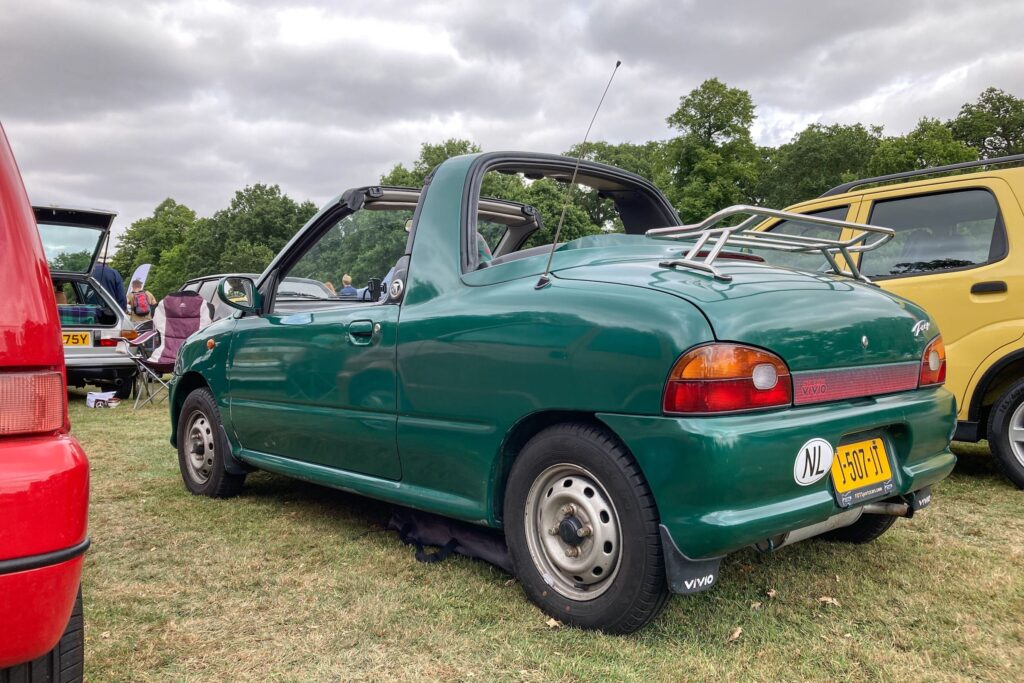
Strange as it might seem, the idea of roof-down driving wasn’t out of the ordinary in Japan’s heavily regulated kei-car segment. One of Honda’s first cars, the 1962 S360, took the form of a two-seat roadster, and in the 1980s and early 1990s the scene really ramped up, with the little-known Daihatsu Leeza Spider, and then the more familiar pairing of Honda Beat and Suzuki Cappuccino in 1991.
Subaru’s offering came along in 1994, following the introduction of the regular three-door and five-door Vivio hatchbacks in 1992. Cover the top half of the T-Top and you’d not know anything was out of the ordinary, but above the waistline it’s like something George Jetson would drive.
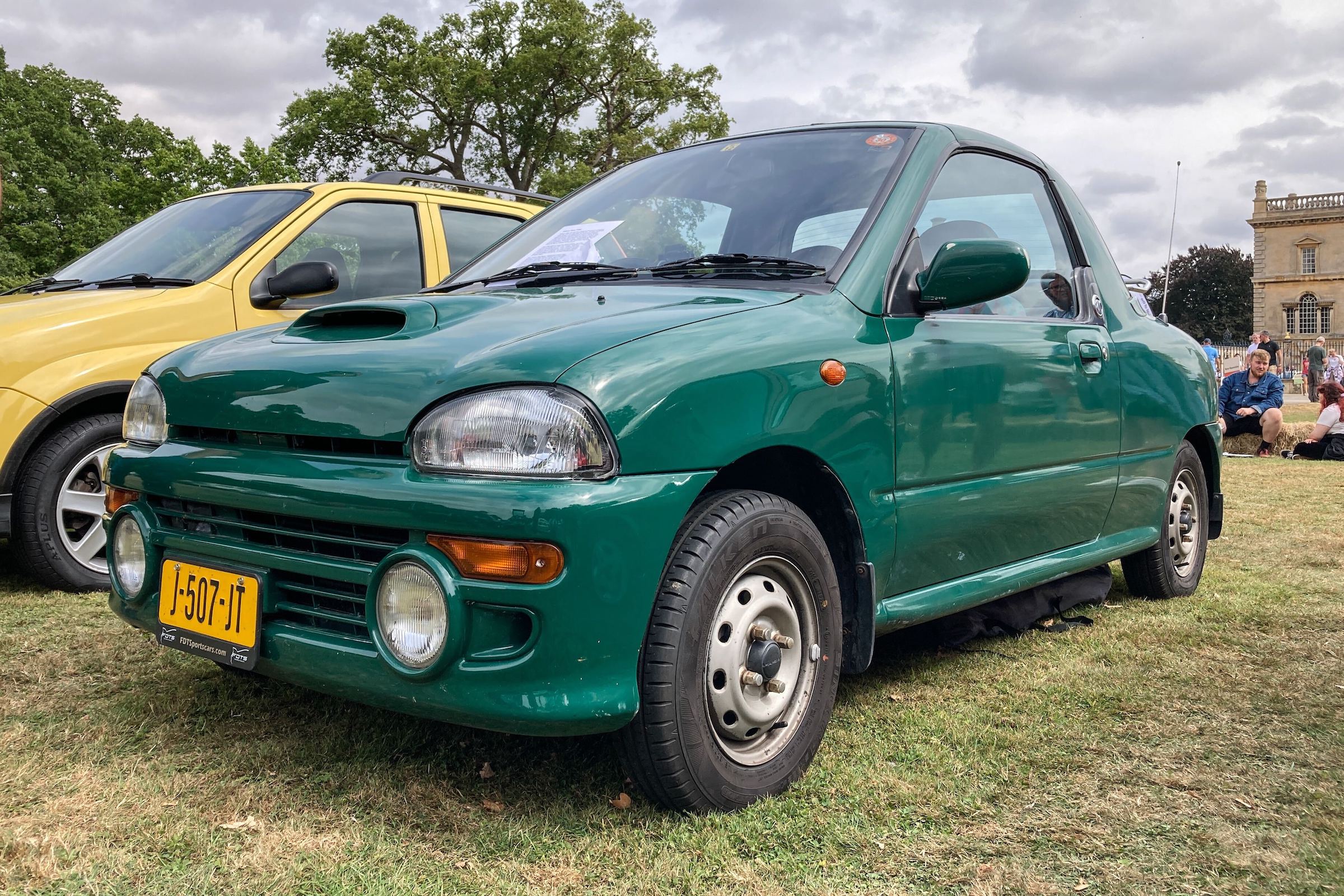
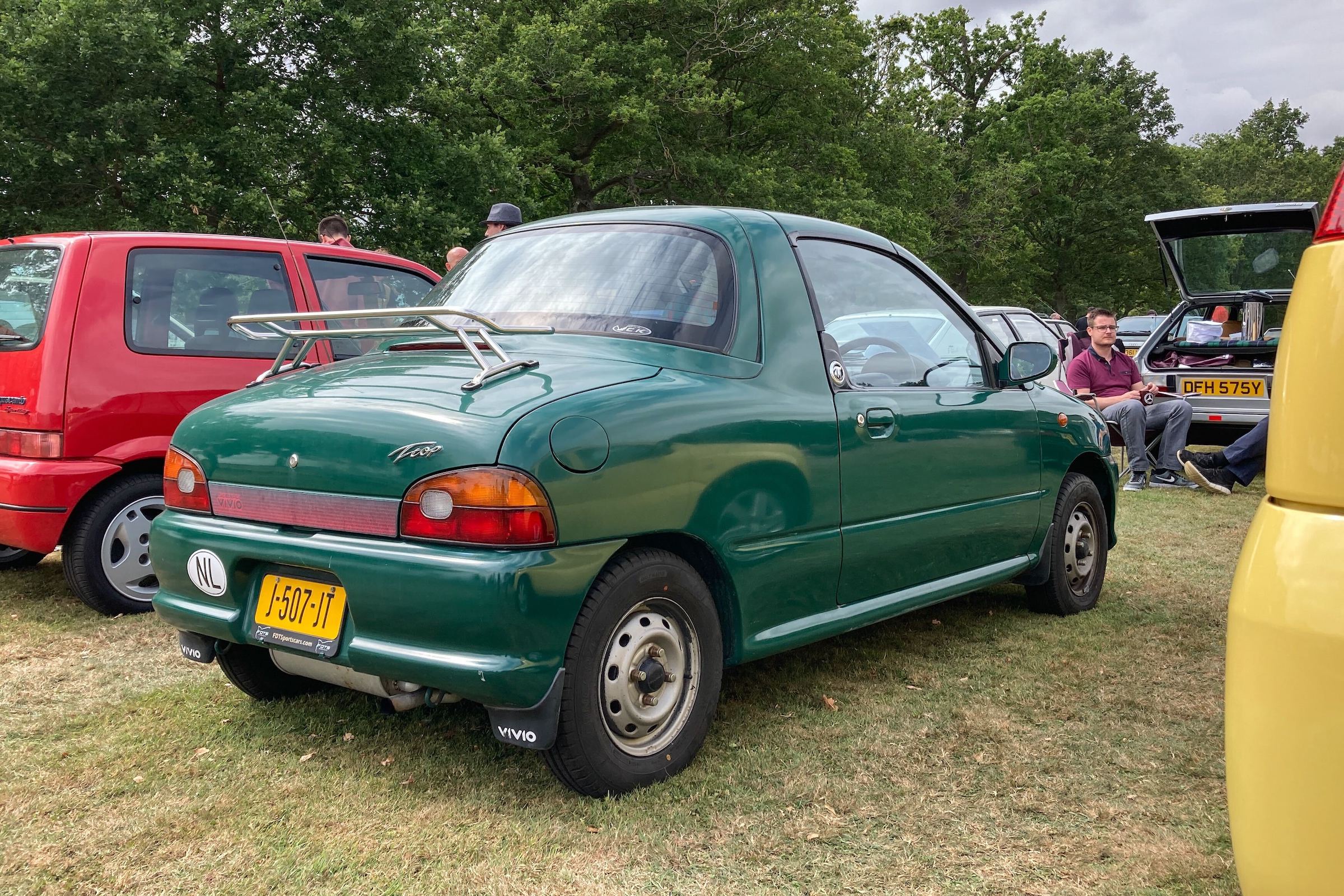
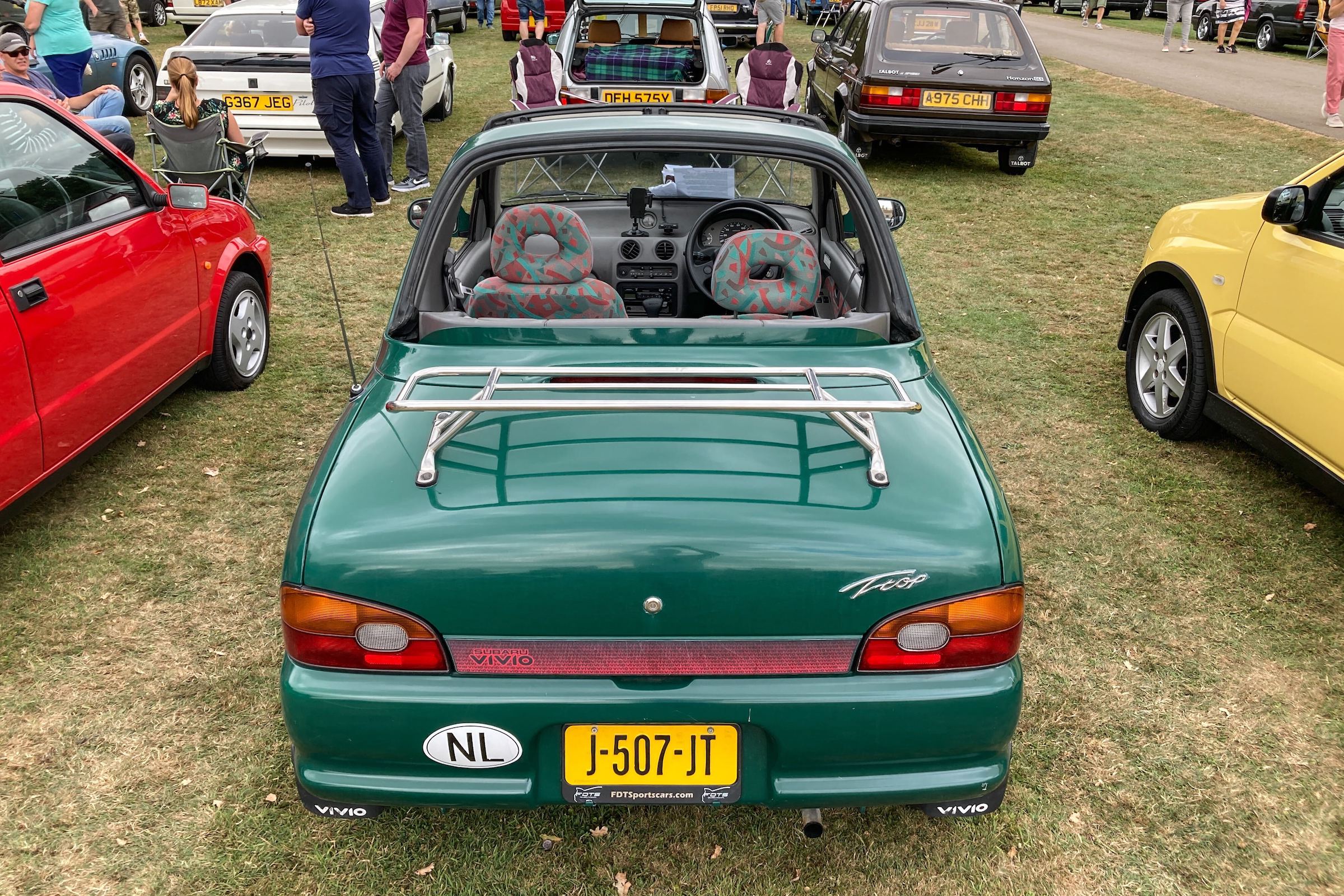
Unlike Suzuki’s similarly odd X-90 off-roader that debuted a few years later, the Vivio, nominally at least, still seats four. The roof comes apart in four sections in an arrangement Subaru called ‘Multi Top’, with the rear window retracting electrically behind the seats, Suzuki Cappuccino-style, while the T-top itself is split into three panels, giving you the option of leaving the central section in place for… well, reasons known only to Subaru’s marketers.
There is a boot, but perhaps given those four seats (or the need to store those roof panels somewhere) Subaru felt the need to equip a chrome luggage rack above it for just a touch more utility. Driven over from the Netherlands, the Vivio T-Top at the Festival seemed to do just fine without it.
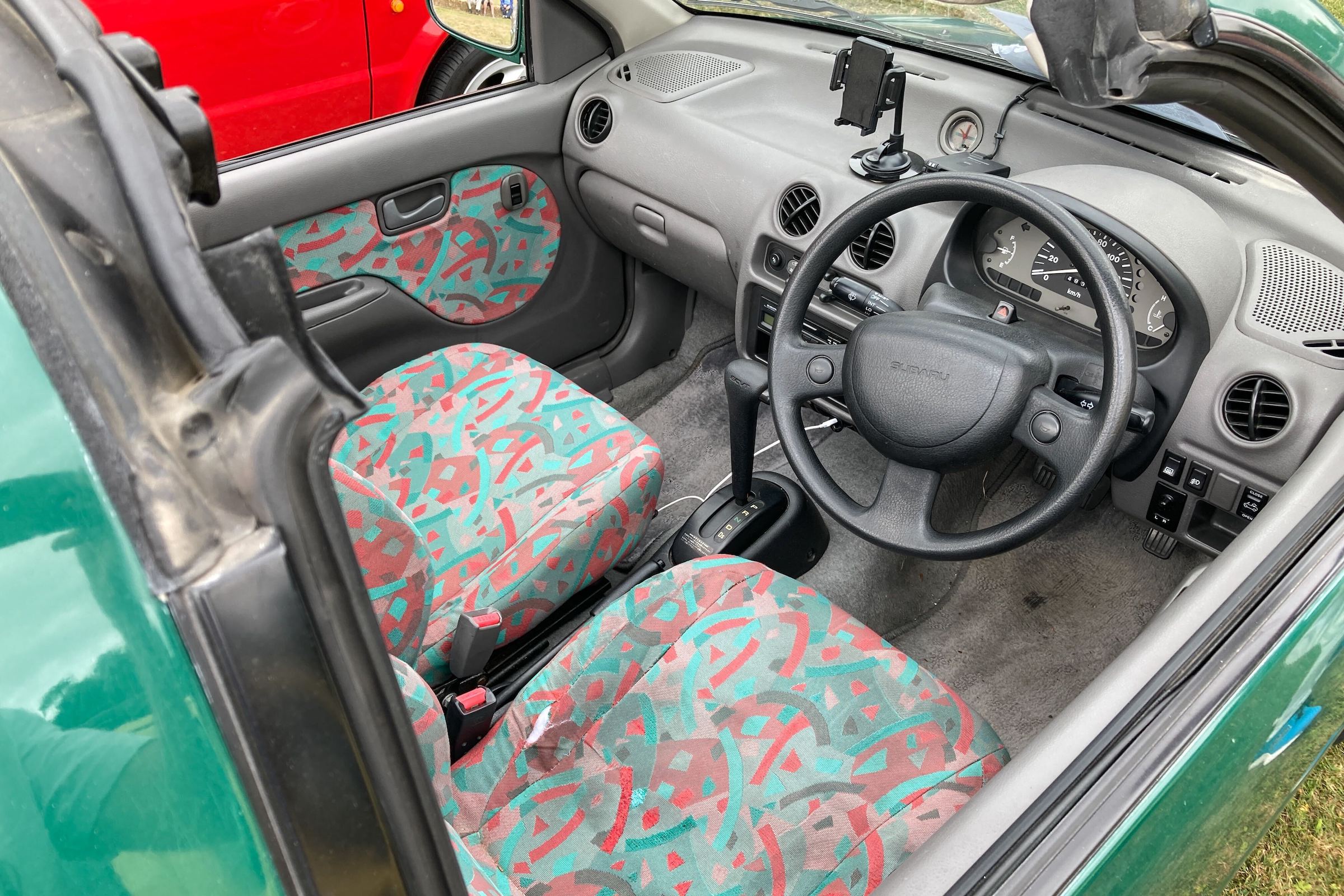
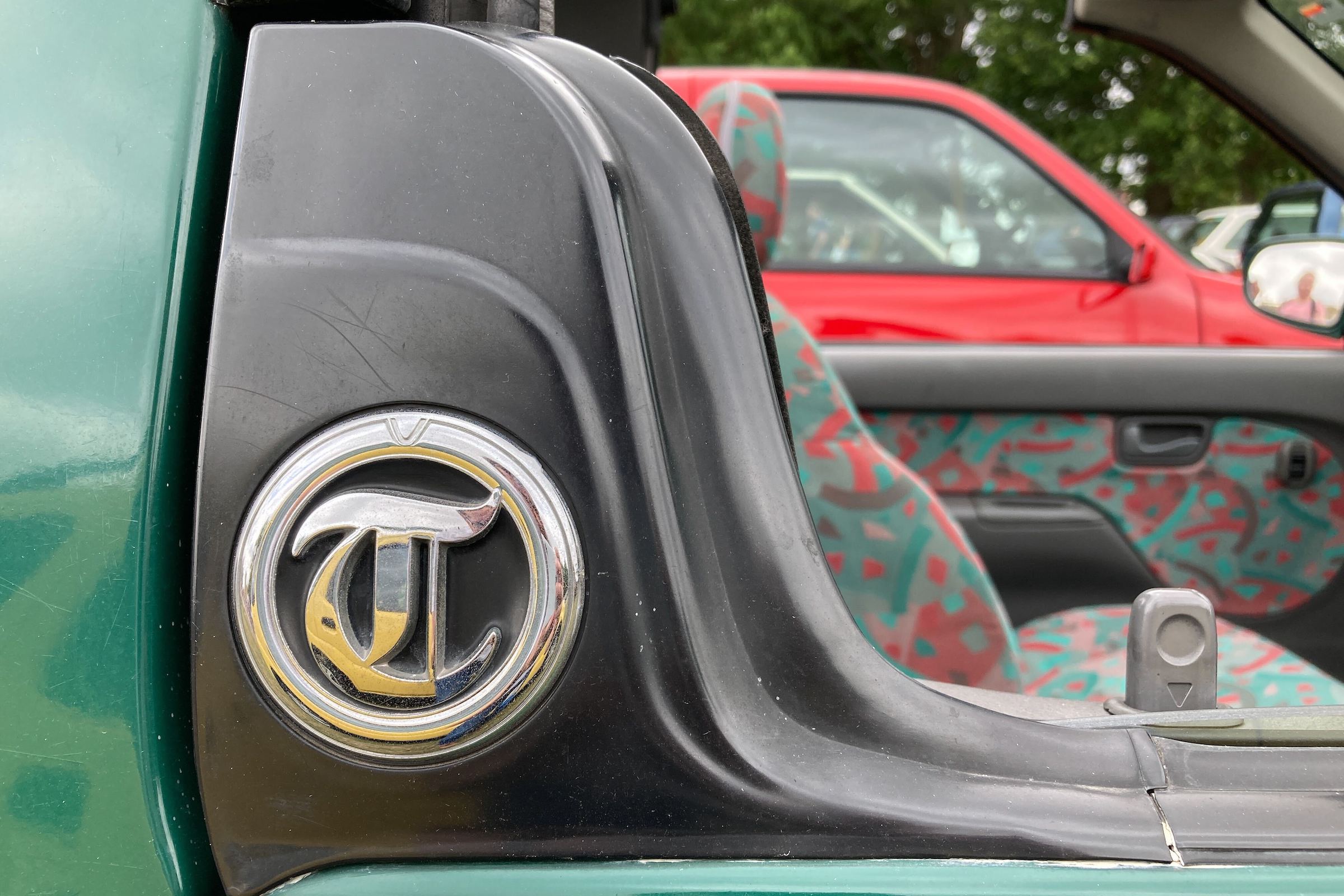
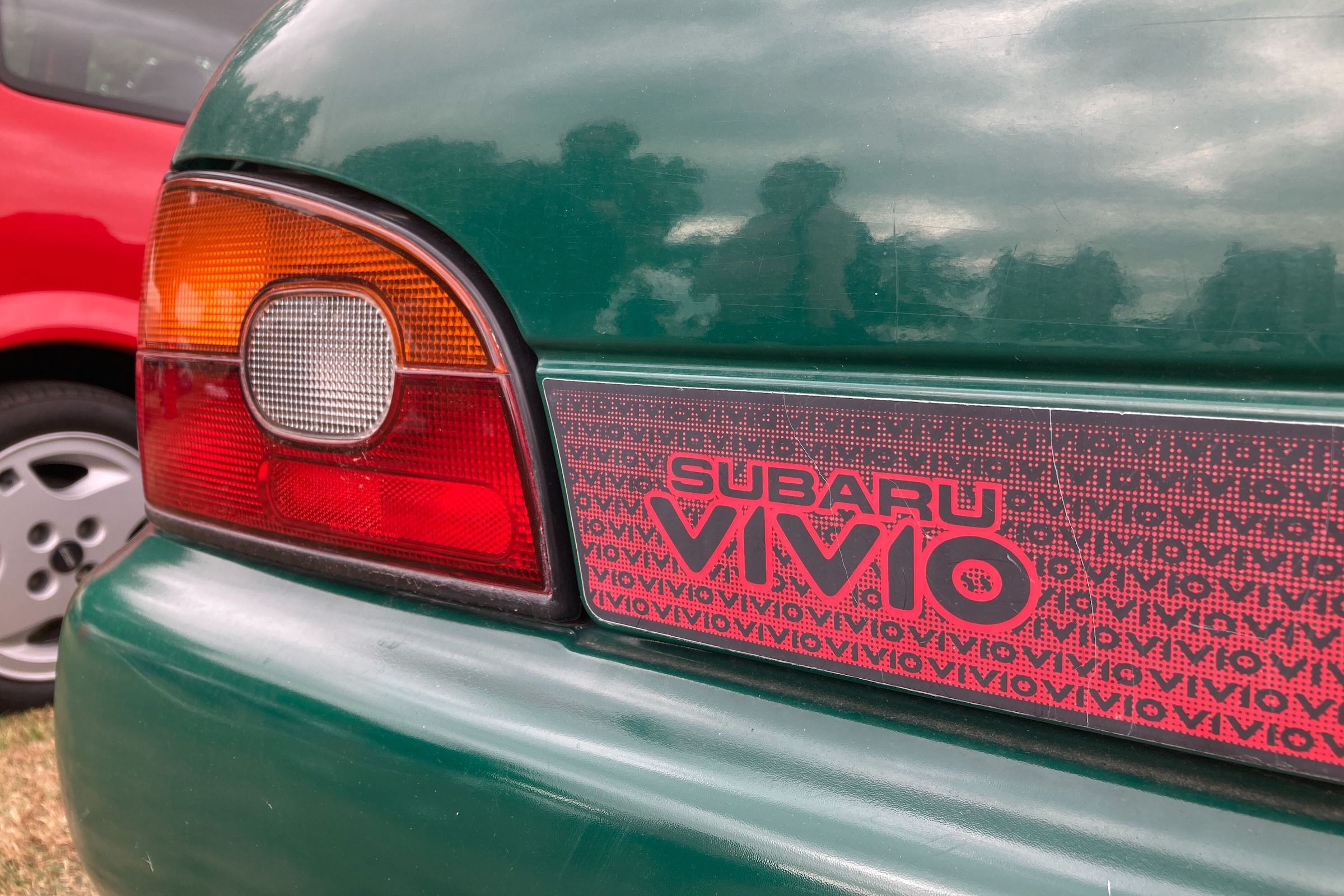
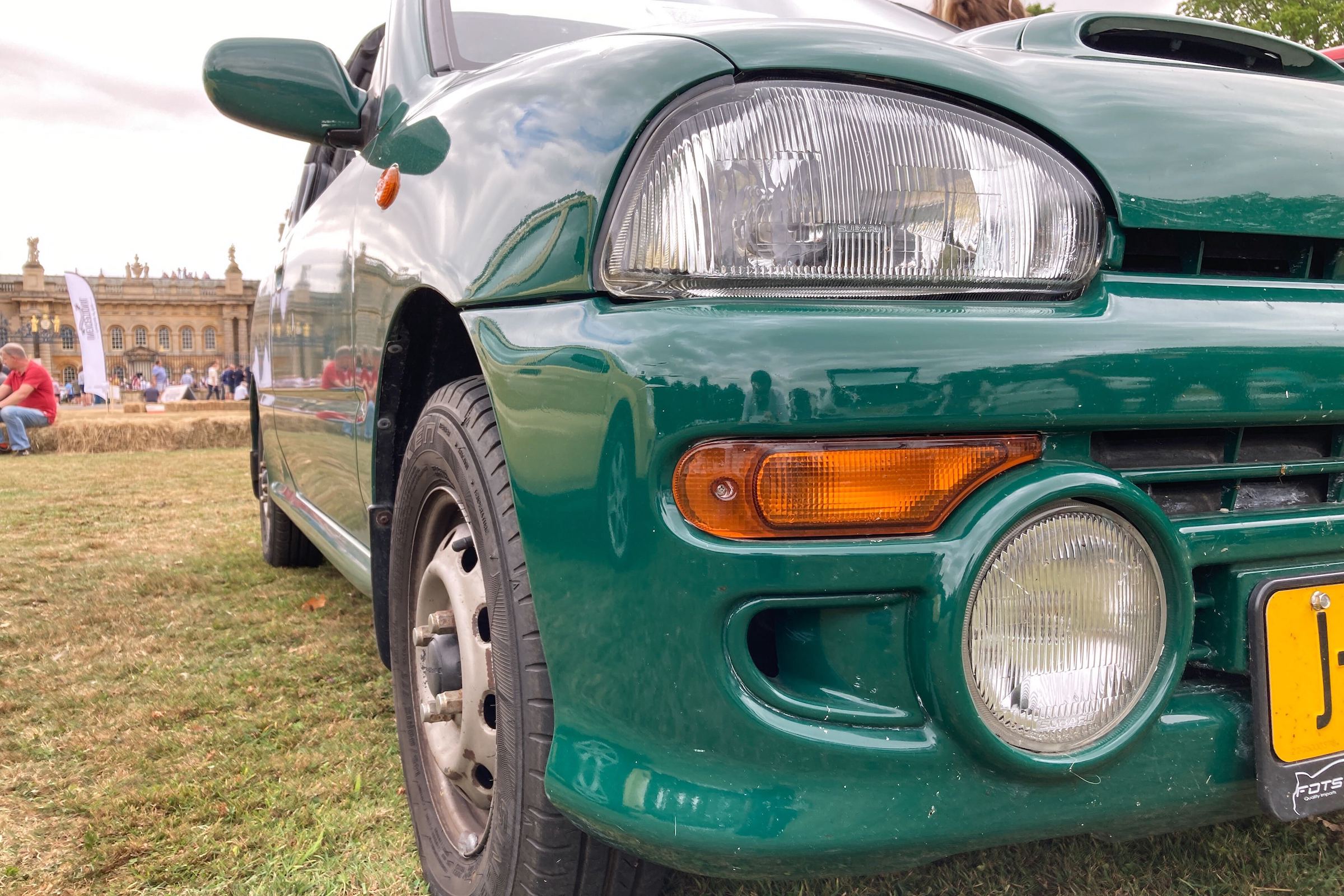
Ignore the wildly-patterned green and red trim and you could almost call the cabin conventional, with widespread use of Japan’s favoured grey plastic of the era. The only real flourish is a small, Swatch-like clock in the centre of the dash.
Vivio T-Tops weighed just 740kg, though that large lever between the seats – and the CVT it’s attached to – no doubt limits its potential as a backroad star. A supercharged model, badged GX-T, was available with a heady 63bhp, 15bhp up on the standard car, though it too was lumbered with Subaru’s ECVT.
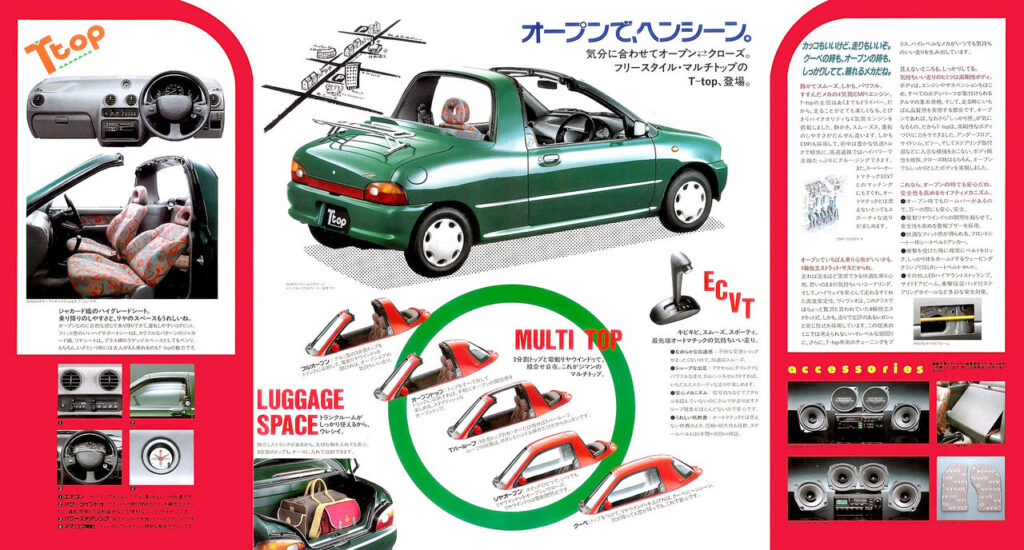
This one’s wearing the Impreza-style front end from the GX-T, with its bonnet scoop and spotlights, but with no twin-exit exhaust and no tachometer in the gauge cluster – and without the owner to confirm its true specification with us – we have to imagine this little green affair is more of a cartoon sheep in a cartoon wolf’s clothing.
While unlikely to ever be considered among the true kei-class sports cars of the early 1990s, the Vivio T-Top is a fun and rather charming reminder of the freedom even tightly-defined regulations can allow. And while more exceptional than most at the show, it was a welcome dose of madness at this year’s Festival of the Unexceptional.
Read more
Tiny Happy People: Driving a titchy classic kei car is big fun
High energy, low mileage: 5000-mile Suzuki Cappuccino comes to market
How to remove a Subaru Impreza WRX engine… or maybe what not to do




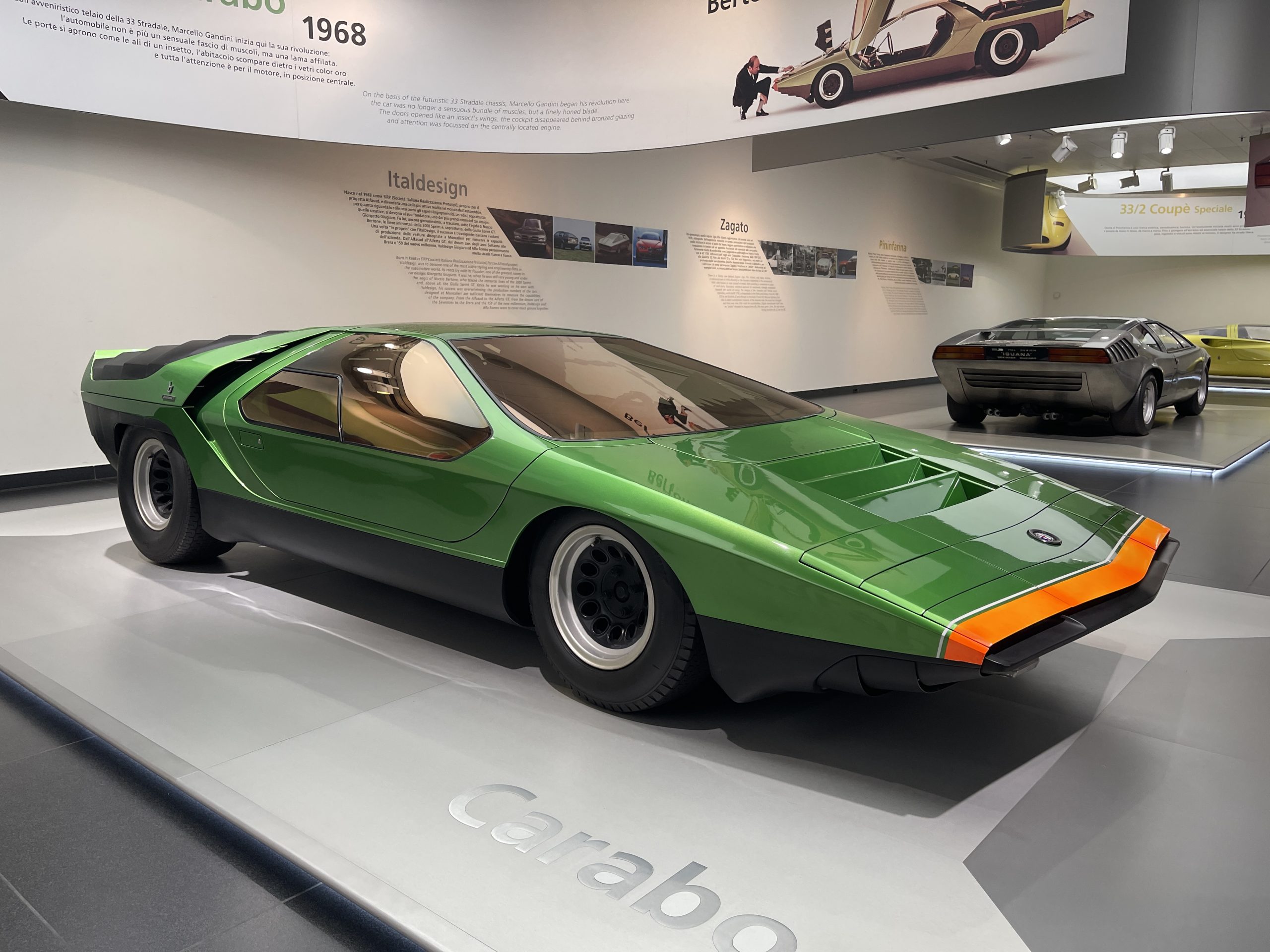
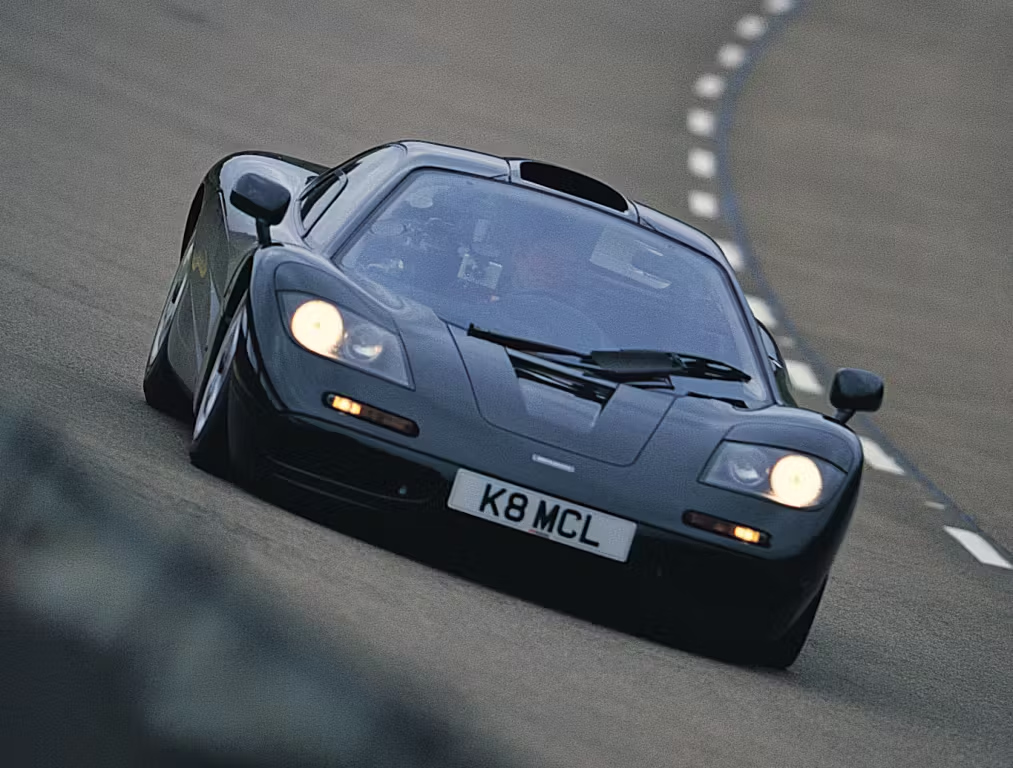
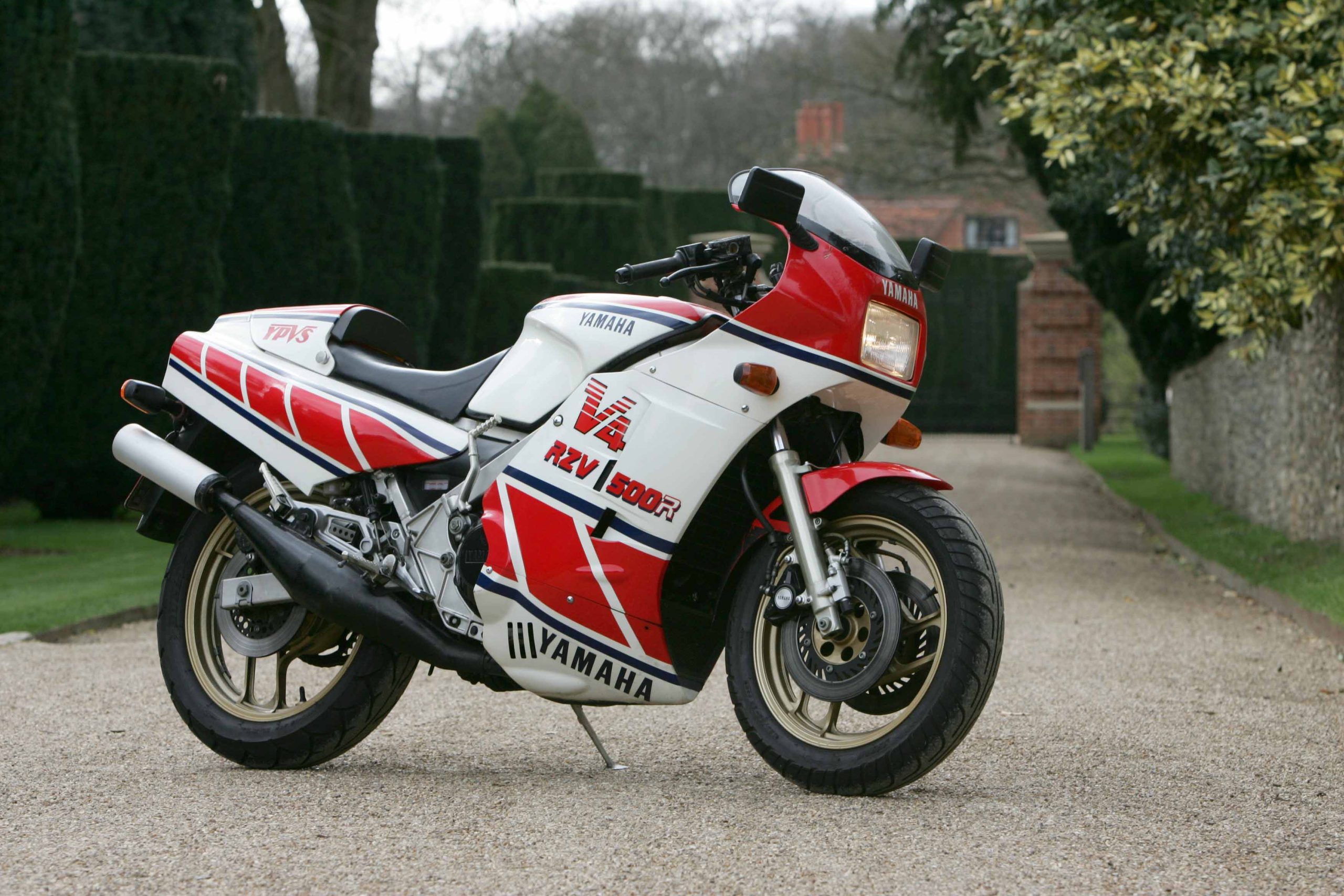
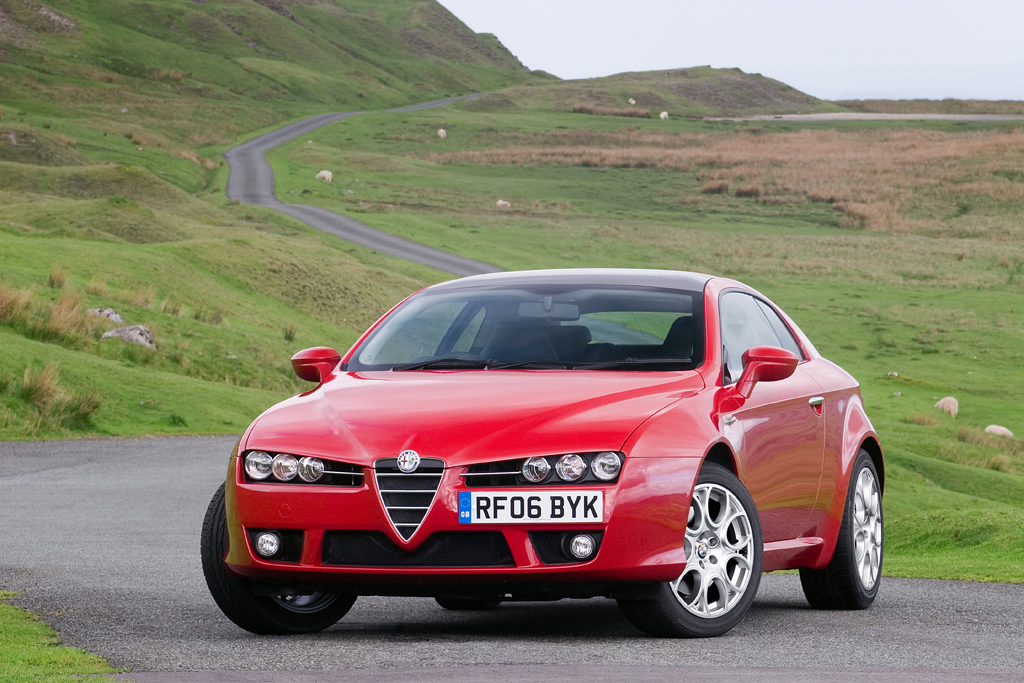
It is indeed not the GX-T. The bonnet is not original.
Hi Tony, we at FDT Sportscars in The Netherlands imported this car and sold it to the current owner Evert Cevaal. If you’d like to know more, feel free to contact any of us.
Hi Alexander, thanks for the extra info, I’m sure I’ll be in touch at some point.